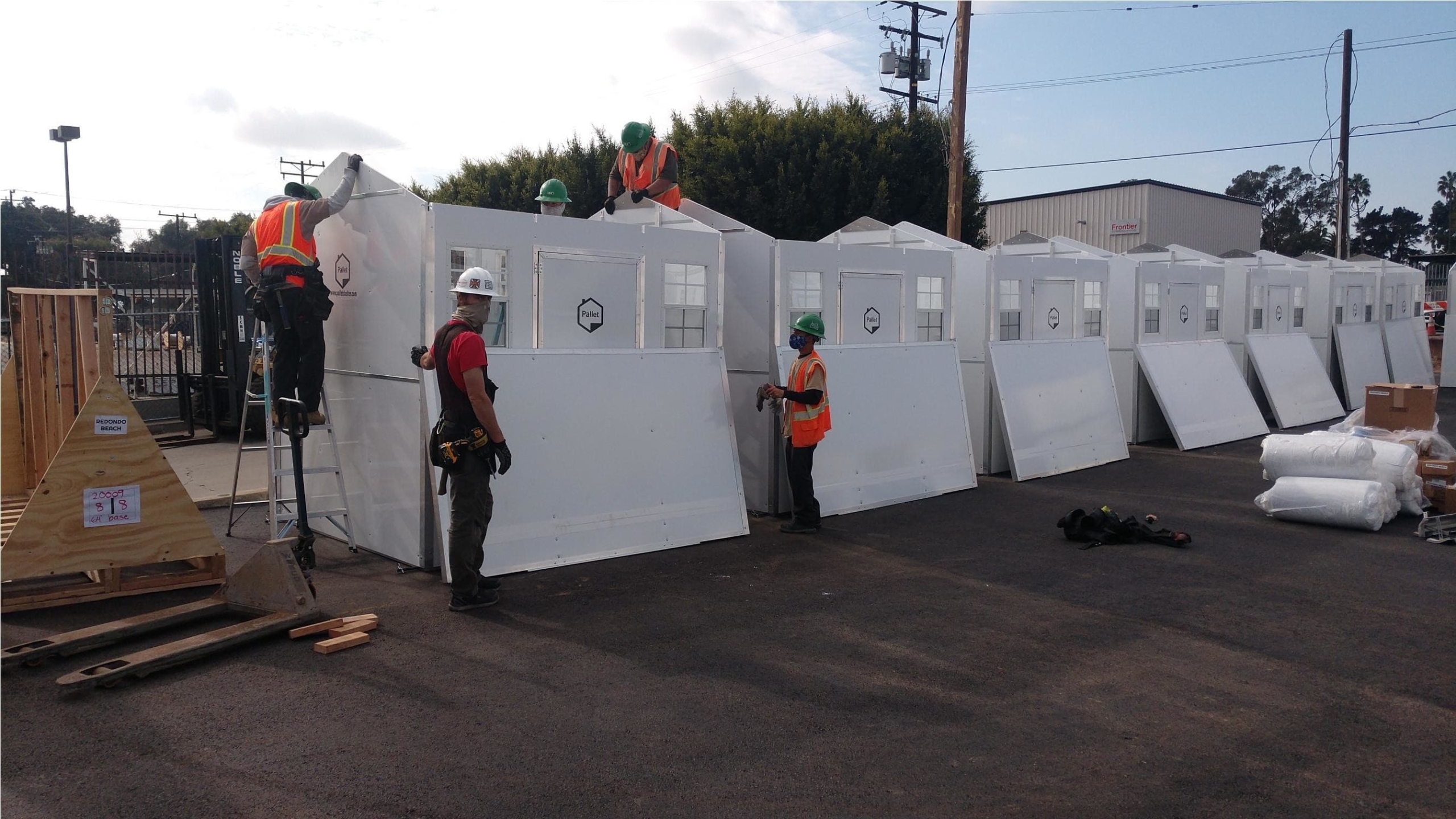Housing insecurity is a growing concern for many individuals throughout the country. Service and Conservation Corps like Los Angeles Conservation Corps (LACC) are working to make sure individuals have access to safe and secure temporary housing. Lawrence Melendez, a Senior Program Manager for the Corps, shares his insight on LACC’s partnership with Pallet.

Program Background:
In the Fall of 2020, LACC was introduced to Pallet by a district counsel in the city of LA.
“LA has many people experiencing homelessness. While the LACC is an environmental group, we also address any form of crisis going on, and I think that the homelessness issue can be said to be a crisis situation. So, we’re glad to help,” said Melendez.
Pallet creates temporary shelters that can be built on short notice to address crises. To date, LACC has built 611 temporary homes with Pallet for people experiencing homelessness. At the time of interview, Melendez estimated LACC would hit 700 by the end of November 2021.
“We build 5-10 a day, but they are in progress…The ones we assemble generally have two beds, so potentially we’ve housed 1,400 people,” said Melendez. “The goal is to get a little community of people together where other services can help. I believe it’s supposed to be considered a transition space, it’s not a permanent home.”
Corpsmembers:
LACC rotates Corpsmembers that work on the Pallet homes. Training takes place on the job; a main skill Corpsmembers learn is working together as a team to fit all the pieces of the homes together.
“I think there is some sense of teamwork just in the sense that you’re building a home. They know that they are building a home and I think that’s a cool thing,” says Melendez.
Corpsmembers generally come from the surrounding area and are ages 18-25. Some, but not all Corpsmembers, are AmeriCorps participants.
In addition to building their teamwork skills, Corpsmembers working on the Pallet homes see all that goes into creating a home. They work alongside electricians and plumbers and gain a sense of the coordination required to put together a large project.
The also problem-solve issues of prefabricated parts not necessarily fitting together and work out solutions to it.
Day-to-Day:
Building 5-10 homes a day is no small feat. Corpsmembers arrive at LACC’s site at 6:30 a.m. for a warmup and announcements related to the Corps. They then load up enough tools for a 5-10-person team, and head out. Melendez notes that the Pallet sites are up to an hour away depending on LA traffic.
At the beginning of a project, Pallet offloads materials to be constructed. Once at the site, Corpsmembers generally “stand up” all four walls and roofs. Next, they dive into “finishing work.” This involves weatherproofing, placing air conditioning and heating units, placing stickers, fire extinguishers and other finishing touches.
Melendez says at the end of their eight-hour day, Corpsmembers generally report 30 homes “stood up” and five finished.
A few weeks later, Corpsmembers will return with a punch-list to make sure all the stickers and items are in place. Melendez says that by this point, there are often people already living in the houses.
Completed Homes:
Completed Pallet homes have a “homey feeling.” They have locking doors and windows, providing security that many people experiencing homelessness don’t have access to.
“I describe [the houses] as if you’re a kid and trying to draw a home. It’s four walls and a roof, two pitches on the roof. It does have windows in the front and the back. They are 64 square feet, and they are square, so eight feet by eight feet,” says Melendez.
The homes also include outlets that are active if hooked up to power. They contain two fold-out beds with room for storage beneath, and shelves for more storage. Though the exteriors are white with silver trim, some communities have come together to paint them multicolored. Groups of these homes have been as large as 123 houses in a single area and as small as 20. Communities have separate bathroom and security units.
The homes not only provide shelter, but also enable people to have easier access to services they may need, while giving a sense of independence and dignity to the inhabitants.
Melendez notes that Pallet employs people who are of similar background to the Corpsmembers at LACC, making the partnership a great and productive fit. “It’s been a good partnership” he says.





































































